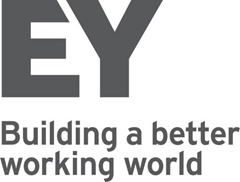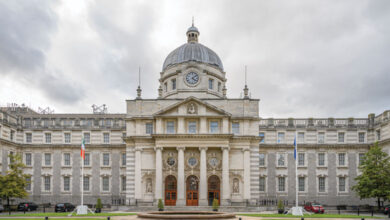Building, connecting, collaborating
 There are signs of growth in many economies around the world.
There are signs of growth in many economies around the world.
Colm Devine, Partner and Head of Government Services at EY, tells eolas about the implications of global growth for Ireland’s public services while we are in the midst of public service reform.
The Irish Government has had to adjust to the pressures of substantially reduced budgets alongside rising unemployment and increased demands on public services. This is a conundrum which has placed significant pressure on the public service and one which is currently being navigated through the Public Sector Reform programme.
As the global economy improves, businesses will begin to grow sustainably, employment will rise, consumer spending will increase and governments will invest in their citizens. We all hope for sustained economic growth and there are signs emerging that this could be the case – but what are the trends that Public Sector Reform will need to track and accommodate to ensure that Ireland is building, connecting and collaborating in a better working world?
For an economy to work effectively, collaboration between businesses, government, non-profit and other organisations is required to achieve a common purpose. However, this is not straightforward. We live in times of fundamental change, and our systems of government are being challenged day in, day out, by global trends that require responses both now and over the next five to 10 years. Innovative leadership and mind-sets will make the difference.
Tracking these trends
The first of these developments is the emergence of deeply interconnected global economies, something that has been illustrated during the global financial crisis. Governments are now more connected than in the past and are exchanging best practice on problems and solutions in areas much broader than just economic performance. Importantly, Ireland needs to manage this new reality of interconnectivity, while at the same time responding to the demands of some citizens who want to return to old models of local or domestic interest.
There is a need to strike a balance between traditional trade and investment links, and new links to the world’s fastest growing markets. Resurgence in growth of foreign direct investment (FDI) will test innovation within our public services, while at the same time our government’s ability to service large scale inward investments will be benchmarked by discerning overseas investors. Infrastructure, technology, skills, and many other factors need to benchmark favourably against competing global locations.
The second trend is the shift from west to east, which is resulting in a completely different economic and political balance in the world. According to EY’s Economic Eye Winter forecast for 2013, the main drivers of strong growth in emerging markets remain intact and both China and India still represent huge and growing markets. After China and India in the growth league table come Sub-Saharan Africa, the wider Asia-Pacific and the Middle East and North Africa (MENA) as the next fastest growing economies over the next decade. It’s time to look at global trade opportunities through a different, more balanced lens.
Understanding these requirements is essential – how do our government and public services accommodate doing business with China? Where do we need to change to allow our citizens and businesses to do businesses with these globally connected economies?
The third trend is the use of technology. While technological advances continue to ricochet across the private sector — applications, cloud computing, social media and big data are all relatively recent advances — governments are now racing to keep up as technology is increasingly being used to influence political decision-making, build coalitions and interest groups, and establish whole new forms of business. There is also an emergence of powerful new biochemical, biological and genetic technologies which will range from agricultural biotechnology, to biopharmaceuticals to industrial biotechnology. Significant government intervention will be required to address issues relating to technological developments, regulatory conditions, human resources, social acceptance, market structure and business models.
There are already signs in our market of skills shortages, despite our unemployment levels. Ireland is an attractive location but with significant growth in areas such as analytics, software engineering, biotechnology, and cloud (among many others), there are significant strains on infrastructure and skills within Ireland. This is true of many other locations and while some would argue that this should be a problem for the ‘market’ to resolve, governments are doing business globally. The exchange of data, health informatics and even the trading of energy will breach government borders and we need to ensure Ireland is a leader.
Crucial role
Governments are and will be at the heart of many of these changes. They play a crucial role through legislation and regulation, policy and planning, budgets and funding, education and culture, leadership and national stewardship. However, they may need to reinvent themselves to meet some of these demands. The same networks and technologies that transform society at large will need to be used to transform governments, how they work and how they engage with citizens.
This can be done if government focus on the long term as we have some exceptional talent in the leadership of the Civil Service and a workforce experiencing a lot of pressure on many fronts, which can create mixed motivations for change. There is an opportunity to create a race to the top for the country, using this talent to readjust the shape of government departments and the services they provide. Strong leaders must emerge to create the public service of the future. Like any performance-driven organisation, public service leaders need to incentivise success – creating a culture of improvement, innovation and one of challenge.
We are seeing substantial investment in our technology sector by government as a means of building smart citizens and a smart economy of the future. It is senior public servants who need to bring the global mind-set. There is an opportunity to lead on new solutions, applied to long-standing issues in social service provision and in economic management elsewhere in the world — not just theoretically. Importantly, there is an opportunity for senior public sector leaders to make effective connections across public, private and not-for-profit sectors — the solutions will require effective and co-ordinated action.
There are many instances of collaboration but often senior government leaders are not afforded the tools to accelerate some of these opportunities. Departments gripped by change and often by the fear of change are frustrated in exploring the benefits of collaborating with the private sector.
The support of entrepreneurism is highly important as sometimes innovation comes when more local rather than central ownership is built. Services are not always best provided by government and that collaboration can take many forms.
For the public sector to stay relevant, particularly through this time of public service reform, it needs to future-proof its strategy and respond to rapidly changing conditions and build capacity to operate effectively in complex, interdependent networks of organisations and systems across public, private and non-profit spheres, domestically and internationally to co-produce public value — a more agile, streamlined and tech-enabled public service is the future.
Colm Devine can be contacted via email at cdevine@uk.ey.com


